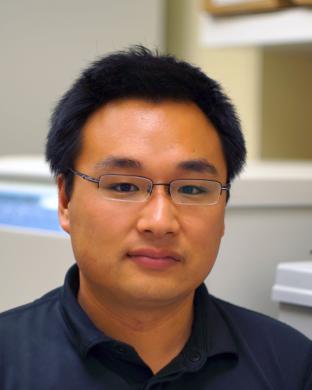Biography
Dr. Liu Liu has long-term research interests in the molecular mechanisms of heart regeneration to effectively prolong and improve the lives of heart patients, particularly in the development of a comprehensive understanding of post-translational/epigenetics regulation-based heart therapy with novel techniques.
One research direction is to identify epigenetic and post-translational modification mechanisms and related molecules in cell fate engineering for heart regeneration. Generation of induced cardiomyocytes (iCMs) directly from fibroblasts offers a great opportunity for cardiac regeneration. We have identified small molecules targeting epigenetic factors(Mll1, Brd4) that could potentiate the reprogramming ability toward cardiac fate by removing inhibitory roadblocks in histones.
His collaborative research efforts have recently led to the development of a novel concept for a post-translational modification (PTM) code that exists across different proteins which contribute to the same biological process. It is believed that histone code can be logically extended to include transcription factors and epigenetic factors termed as “PTM code”. This PTM code should be a complementary coding system to the genetic code to guide cell fate conversion, such as iCM reprogramming. The exploration of the PTM code has led to the discovery of a phosphorylation code in 14-3-3 binding motifs (PC14-3-3) that greatly stimulates iCM formation. Furthermore, his team has identified that PTM code PC14-3-3 serves as a pivotal regulator in the formation of Hdac4 biomolecular condensate which governs reprogramming. A PTM code has the following characteristics: 1. The coding information depends on motif sequences and PTM modifications. 2. This type of code possesses a collaborative function for a specific biological process by connecting the diversity of its embedded proteins. 3. Naturally, the code’s collaborative function is executed at multiple levels but is very likely spatiotemporally connected.
Dr. Liu's research team is utilizing protein large language model and natural language processing related machine learning methods to gain further insights into the functional implications of different types of PTM code for regeneration medicine.
Education
- 2012 - PhD, Nanjing University, Nanjing, China
- 2008 - MS, Yangzhou University, Yangzhou, China
- 2005 - BS, Yangzhou University, Yangzhou, China
Positions & Employment
- 2023-Present - Research Assistant Professor, University of Michigan, Cardiac Surgery, Ann Arbor, MI
- 2018-2023 - Research Investigator, University of Michigan, Cardiac Surgery, Ann Arbor, MI
- 2013-2018 - Research Fellow, University of Michigan, Cardiac Surgery, Ann Arbor, MI
- 2008-2012 - Graduate Research and Teaching Assistant, Nanjing University, Nanjing
Other Experience and Professional Memberships
- 2024-Present - Affiliate Faculty Member, Michigan Institute for Data Science, University of Michigan, Ann Arbor, MI
- 2018–2021 - Associate Editor, OnLine Journal of Biological Sciences
- 2017-Present - Member, American Heart Association
Areas of Interest
Posttranslational Modification, Cell Fate Engineering, Regeneration, and Machine Learning
Honors & Awards
- 2024 - Career Development Award, American Heart Association
- 2019 - MCubed Research Award from University of Michigan, University of Michigan
- 2009 - Scientific Research Award of Graduate School, Nanjing University
- 2008 - Outstanding Graduates, Yangzhou University
- 2007 - Merit Student of School, Yangzhou University

